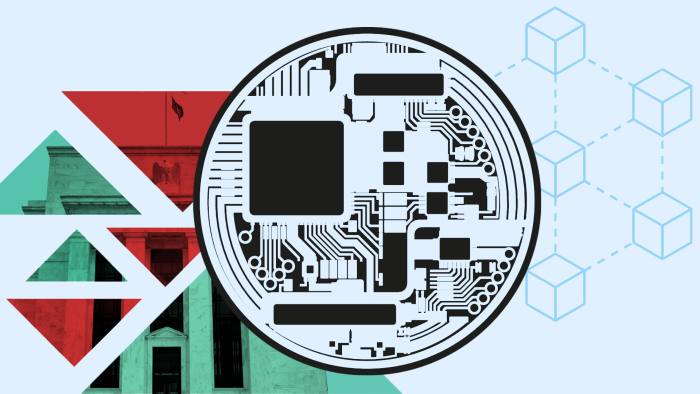SEC crypto clampdown puts digital asset industry on notice
US market regulators have put the crypto industry on notice, indicating they will crack down on violations such as insider trading and fraud with the same vigor as they pursue them in traditional finance.
In recent weeks, the Securities and Exchange Commission has filed charges against individuals for allegedly creating a $300 million “fraudulent crypto-pyramid and Ponzi scheme,” as well as a case against a former employee of crypto exchange Coinbase.
Officials at the agency, including chairman Gary Gensler, are wasting little time as this year’s turmoil in digital asset markets has left investors facing big losses. Although much of the market is unregulated, the SEC uses pre-existing rules in traditional finance to monitor the crypto market.
“In traditional finance, these guys are under a microscope,” said Charley Cooper, CEO of blockchain firm R3 and former chief of staff at the Commodity Futures Trading Commission, the U.S. derivatives regulator. He said, however, that many crypto traders “didn’t pay attention” under the assumption that the rules would not apply.
The SEC’s case against the former Coinbase employee and his associates has resonated because the regulator’s claims depend in part on at least nine tokens being identified as securities.
Stocks, bonds and other securities fall under the watchdog’s remit, but there is a heated debate about the extent to which crypto tokens should fall under this umbrella. The former Coinbase employee said he was “innocent of any wrongdoing”, while the exchange said it has “zero tolerance for this type of misconduct”.
The case has “brought the issue of potential insider trading and wire fraud to the forefront of all crypto companies’ minds, to ensure they have adequate policies and procedures to prevent insider trading,” said Teresa Goody Guillén, a partner at BakerHostetler, a US law firm.
Crypto financing

Critical intelligence on the digital asset industry. Explore the FT’s coverage here.
The largest exchanges say they have long-standing confidentiality obligations on employees. A spokesperson for Binance said that each employee is “subject to a 90-day lock on any investments they make, and company managers are mandated to report any trading activity on a quarterly basis”.
Coinbase said the exchange has had confidentiality obligations in place for employees since 2012, and formal guidelines for trading digital assets in place since 2018 – six years after the exchange was established. Bitfinex said it has “appropriate” policies and procedures in place against insider trading. Several other major crypto exchanges, including FTX, did not respond to the FT’s requests for information on policies in place to identify or reduce insider trading.
The SEC’s recent cases have also ruffled feathers in Washington, where lawmakers are debating the framework for regulating cryptoassets but have yet to reach agreement.
In the absence of specific rules, Gensler has repeatedly pushed for his agency to lead the United States’ approach to crypto, arguing that many digital assets are securities. To support his argument, he has cited cases and precedents set in American law decades ago.
The charges against the former Coinbase employee were “a striking case of ‘regulation by enforcement,'” Caroline Pham, a commissioner at the CFTC, said last month. “The SEC’s allegations could have broad implications beyond this single case, and underscore how critical and urgent it is for regulators to work together.”
And as the SEC stakes out territory, some lawmakers in Washington are also trying to limit its influence in the crypto industry.
On Wednesday, Senators Debbie Stabenow and John Boozman sponsored a consumer protection bill that would give the CFTC exclusive jurisdiction over digital commodity trading. Although few expect the bill to become law, observers say the proposal is likely to influence other legislation in the future.
Peter Fox, a partner at Scoolidge, Peters, Russotti & Fox, said he had been expecting an SEC crackdown for some time.
“My suspicion is that they kind of kept the fire going through the winter, while real estate prices were very high and a lot of these businesses were quite popular and the stock markets were in the middle of a big advertising blitz. . . . I just think the timing of this prosecution is not a coincidence.” »
A securities lawyer formerly employed by the SEC said the regulator “tends to focus more significantly” during periods of market turmoil, to “avoid public criticism that there is somehow a problem with market integrity.”
But others point out that the vacuum created by a lack of regulation meant that the SEC, as America’s most powerful market regulator, had little choice but to act.
“If they don’t, you’re not going to be left with anyone other than the Justice Department who can do criminal enforcement,” said Charlie Steele, a former U.S. government attorney and now a partner at Forensic Risk Alliance, a regulatory consultancy. “It highlights the need for these regulators to figure this out.”

Click here to go to the Digital Assets dashboard

